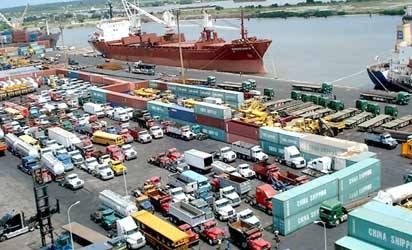The Nigeria Shippers Council (NSC) has taken decisive action in response to the alarming situation of 4,817 export containers trapped at the Lagos port, summoning a stakeholders meeting to address the pressing issue.
This development comes after persistent complaints from shippers and their agents regarding the prolonged detention of export containers at the port.
During a recent working visit to the terminal, the Executive Secretary/CEO of the Shippers Council, Pius Akutah, expressed deep concern over the substantial delays experienced by export cargo, particularly amidst the federal government’s efforts to diversify the economy.
APM Terminal, the facility responsible for handling these containers, revealed that despite adhering to all prescribed procedures, a significant number of containers did not receive customs clearance for loading onto vessels for export. This bottleneck has resulted in an unwelcome backlog, causing frustration among stakeholders.
In a bid to alleviate the situation, APM Terminal announced that shipping giant Maersk has been persuaded to evacuate 1,900 of the trapped containers from their premises by Wednesday. However, concerns were raised during the meeting regarding the apparent reluctance of shipping lines to expedite the process, prompting questions about the reasons behind the delays.
Deputy Director of Consumers Services at NSC, Celestine Akunjobi, voiced skepticism about the shipping lines’ actions, questioning whether the delays were deliberate. He stated the urgency of resolving the issue promptly to prevent further economic losses.
In response, the General Manager, Legal of APM Terminal, Chinenye Deinde, urged against hastily assigning blame to the shipping lines in their absence, advocating for a fair and thorough investigation into the root causes of the delays.
Terminal Manager of APM Terminal, Steen Knudsen, stressed the necessity of collaboration among all parties involved, including government agencies, shipping lines, shippers, and agents, to devise more efficient processes for handling export cargoes.



